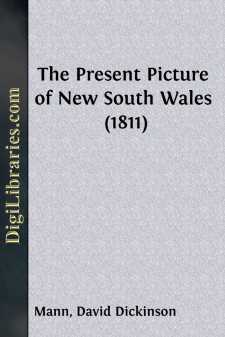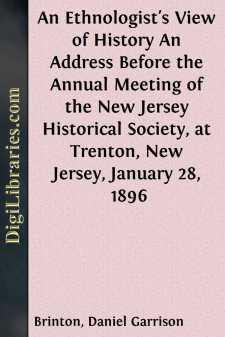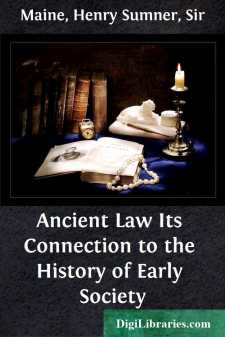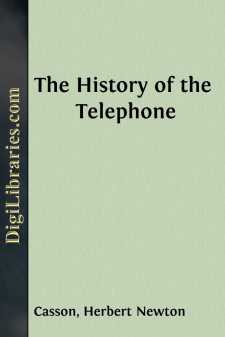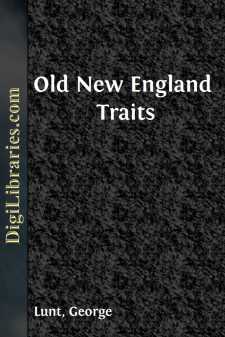History
- Africa 30
- Americas (North Central South West Indies) 50
- Ancient 68
- Asia 58
- Australia & New Zealand 8
- Canada 41
- Caribbean & West Indies 1
- Civilization 20
- Eastern Europe 12
- Europe 310
- Expeditions & Discoveries 60
- General
- Historical Geography 1
- Jewish 9
- Latin America 3
- Medieval 8
- Middle East 13
- Military 248
- Revolutionary 8
- Study & Teaching 5
- United States 353
- Western Europe 56
- World 13
General Books
Sort by:
by:
Harriett Bradley
INTRODUCTION The enclosure movement—the process by which the common-field system was broken down and replaced by a system of unrestricted private use—involved economic and social changes which make it one of the important subjects in English economic history. When it began, the arable fields of a community lay divided in a multitude of strips separated from each other only by borders of unplowed...
more...
Chapter I.Discovery of New South Wales.--Arrival of a Colony there from England.-- Obstructions calculated to retard the Progress of the Settlement.-- Departure of Governor Phillip.--Intervening Governors, until the Arrival of John Hunter, Esq. and his Assumption of the Government.-- Printing Press set up.--Cattle lost, and Discovery of their Progeny in a wild State.--Playhouse opened.--Houses...
more...
The making of harpsichords flourished in Italy throughout the 16th and 17th centuries. The Italian instruments were of simpler construction than those built by the North Europeans, and they lacked the familiar second manual and array of stops. In this paper, typical examples of Italian harpsichords from the Hugo Worch Collection in the United States National Museum are described in detail and...
more...
The intelligent thought of the world is ever advancing to a fuller appreciation of the worth of the past to the present and the future. Never before have associations, societies and journals devoted to historical studies been so numerous. All times and tribes are searched for memorials; the remote corners of modern, medieval and ancient periods are brought under scrutiny; and going beyond these again,...
more...
INTRODUCTION No one who is interested in the growth of human ideas or the origins of human society can afford to neglect Maine's Ancient Law. Published some fifty-six years ago it immediately took rank as a classic, and its epoch-making influence may not unfitly be compared to that exercised by Darwin's Origin of Species. The revolution effected by the latter in the study of biology was...
more...
BRUMAIRE. THE OVERTHROW OF THE FRENCH DIRECTORY. The eighteenth century went out with the French Directory, and the nineteenth came in with the Consulate. The coincidence of dates is not exact by a year and a month and twenty-one days. But history does not pay much attention to almanacs. In general our century arose with the French Consulate. The Consulate was the most conspicuous political fact of...
more...
by:
Sidney Lee
I I Without "the living comment and interpretation of the theatre," Shakespeare's work is, for the rank and file of mankind, "a deep well without a wheel or a windlass." It is true that the whole of the spiritual treasures which Shakespeare's dramas hoard will never be disclosed to the mere playgoer, but "a large, a very large, proportion of that indefinite all" may be...
more...
by:
Andrew Lang
IDon't let your poor littleLizzie be blamed!Thackeray. 'Everyone has heard of the case of Elizabeth Canning,' writes Mr. John Paget; and till recently I agreed with him. But five or six years ago the case of Elizabeth Canning repeated itself in a marvellous way, and then but few persons of my acquaintance had ever heard of that mysterious girl. The recent case, so strange a parallel to...
more...
CHAPTER I. THE BIRTH OF THE TELEPHONE In that somewhat distant year 1875, when the telegraph and the Atlantic cable were the most wonderful things in the world, a tall young professor of elocution was desperately busy in a noisy machine-shop that stood in one of the narrow streets of Boston, not far from Scollay Square. It was a very hot afternoon in June, but the young professor had forgotten the heat...
more...
by:
George Lunt
INTRODUCTION. The Editor of this little volume does not deem it incumbent upon him to explain in what way the author’s manuscript came into his possession. He hopes it may be enough for him to say, that the writer believed himself to be the only person whose memory retained most of the incidents and anecdotes herein recorded; and a long and familiar acquaintance with his character enables the Editor...
more...



